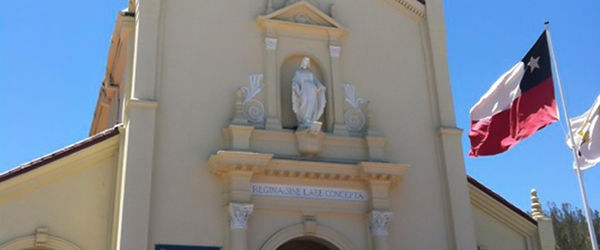Christmas! The very name engenders joyful warmth in millions of Christian hearts around the world, and in a significant number of hearts in other men of good will. Ben Stein, sometime actor and noted economist, has explained that he gives up nothing of his Jewishness by wishing his Christian friends a “Merry Christmas,” nor does he take offense at their wishing him the same. “Only angry, bitter people,” he said recently, “can be insulted at the celebration of the birth of the Prince of Peace which promotes Christian values of forgiveness, love and tolerance.” Mr. Stein might be surprised to learn that, at first, the most implacable foes of Christmas were Christian bishops and theologians. Since birthday festivities were pagan practices, St. Irenaeus, Tertullian and Origen scoffed at celebrating the birthday of Jesus. Their efforts prevented liturgical celebration of “Christ’s Mass” for many decades. It was nearly half a century after the Church gained civil liberty in the Roman Empire with the Edict of Milan in 313 — the 1,700th anniversary of which will be commemorated in February next year — before bishops gave way and realized that singing was an excellent approach for teaching. How many Baby Boomers still hear the voice of Jiminy Cricket from the 1950s “Mickey Mouse Club” when they spell “encyclopedia”? St. Ambrose, bishop of Milan in the mid-300s, set parts of the Mass to music for the faithful to sing, fostering participation in the Holy Sacrifice. Ambrose wrote Christmas hymns such as “Ve¬¨ni, Re¬¨demp¬¨tor Gen¬¨ti¬¨um” as a means of combatting the popular drinking songs written by Arius the heretic promoting his error that Jesus was born a human who only later “attained” divinity. Among Ambrose’s songs still sung today was translated as “Come Thou, Redeemer of the Earth.”How much less would our celebration of Christmas be without the hymns and carols that sprang up from among the common folk then spread by troubadours and minnesingers throughout the kingdoms of Europe? Bishops again needed prodding to allow carols “in the vulgar tongues” to be sung in church but the sensus fidelium prevailed once more.In the mid-1800s Charles Dickens wrote stories to restore the joy of Christmas festivity to England, describing the still vibrant customs of the countryside which had escaped Puritan efforts to snuff out anything related to “papist idolatry.” At the same time William Sandys was collecting carols in England and France still sung in the provinces. Among Sandys’ discoveries were: “The First Nowell,” “God Rest Ye Merry, Gentlemen,” “I Saw Three Ships” and one of my favorites, “A Virgin Most Pure.”Catholic Christmas hymns sung as carols years ago are still played in parishes whose choir directors have long memories or remain unbiased against Latin. “Resonet in Laudibus” with its beautiful refrain, Gaudete, gaudete, Christus natus hodie! Gaudete, gaudete, ex Maria Virgine, and “Tollite Hostia” from Camille Saint-Saens’ Christmas Oratorio, with its long, glorious string of Alleluias, come to mind.Secular humanists are the new Puritans who hate Christmas, seeking to “purify” the public forum of anything Christian. It took a while before they realized with horror (and could assure themselves of judicial support) that, despite prayer being banished from schools in 1962:—singing Christmas carols every year in public school taught students solid Christian concepts found in the Nicene Creed: “God of God, Light of Light / Lo! He abhors not the Virgin’s womb / Very God, begotten not created” (“O Come All Ye Faithful”); —Jesus is the crucified Savior and incarnate God: “Nails, spear shall pierce Him through / The Cross be borne for me, for you / Hail, Hail, the Word made flesh” (“What Child is This?”);—and Jesus will be acknowledged by all humanity as God at the General Judgment: “Though an Infant now we view Him / He shall fill His Father’s throne / Gather all the nations to Him / Every knee shall then bow down” (“Angels From the Realms of Glory”). Advised of this public school officials now cringe with judicial terror when a student sings a Christmas carol on campus within earshot of an atheistic parent or provocateur.For us reasonable people, Christmas carols renew our spirits as we become children again, even as we watch our own children’s eyes sparkle on Christmas morning. This is as it should be. In his much-loved “A Christmas Carol,” Dickens wrote, “It is good to be children sometimes and never better than at Christmas, when its mighty Founder was a child Himself.” In his “Life of Christ,” Archbishop Fulton Sheen wrote that only one Man in history was born so He could die. Jesus the Savior entered the world in a borrowed womb, returned to life in a borrowed tomb and left us the Holy Eucharist at supper in a borrowed room. Many of the best Christmas carols thus combine the delight and merriment of the Incarnation with the melancholy sorrow of the Crucifixion, the exultation of the Resurrection and even speak of His Eucharistic Presence.We sing when we’re happy. The Gospels speak of Jesus singing just once — on the night before He died. We can infer from this detail that Jesus happily left be-hind everything in His mortal life — including Himself in the Blessed Sacrament to fulfill Isaiah’s prophecy that He would be Emmanuel, “God with us.” Ever since, Christians have joyfully sung thanksgiving to Our Lord for the magnificent gift of the Holy Eucharist, the best Christmas present of all.Sean M. Wright, a member of Our Lady of Perpetual Help Church in Santa Clarita, conducts workshops and enrichment courses in the archdiocese on the Holy Eucharist, Catholic symbolic art and carols, along with other Catholic topics. He replies to emails sent him at [email protected].{gallery width=100 height=100}gallery/2012/1214/carols/{/gallery}

